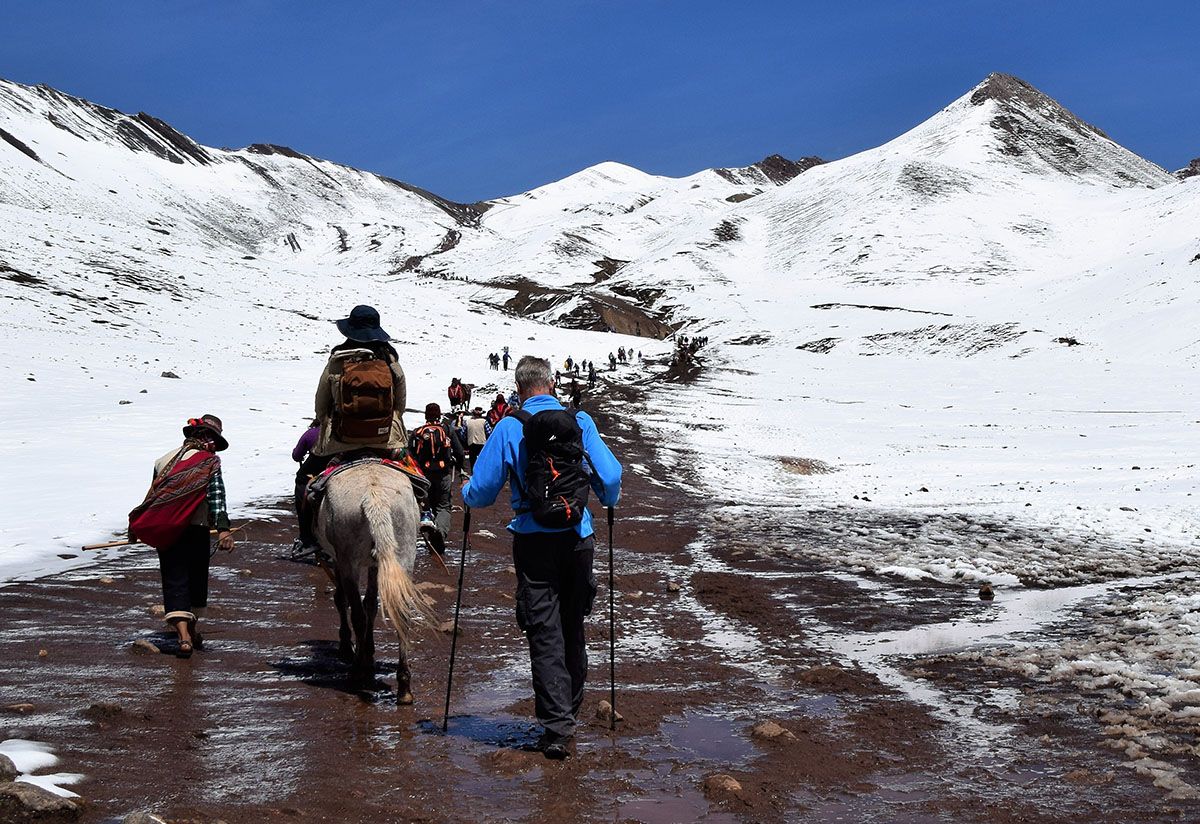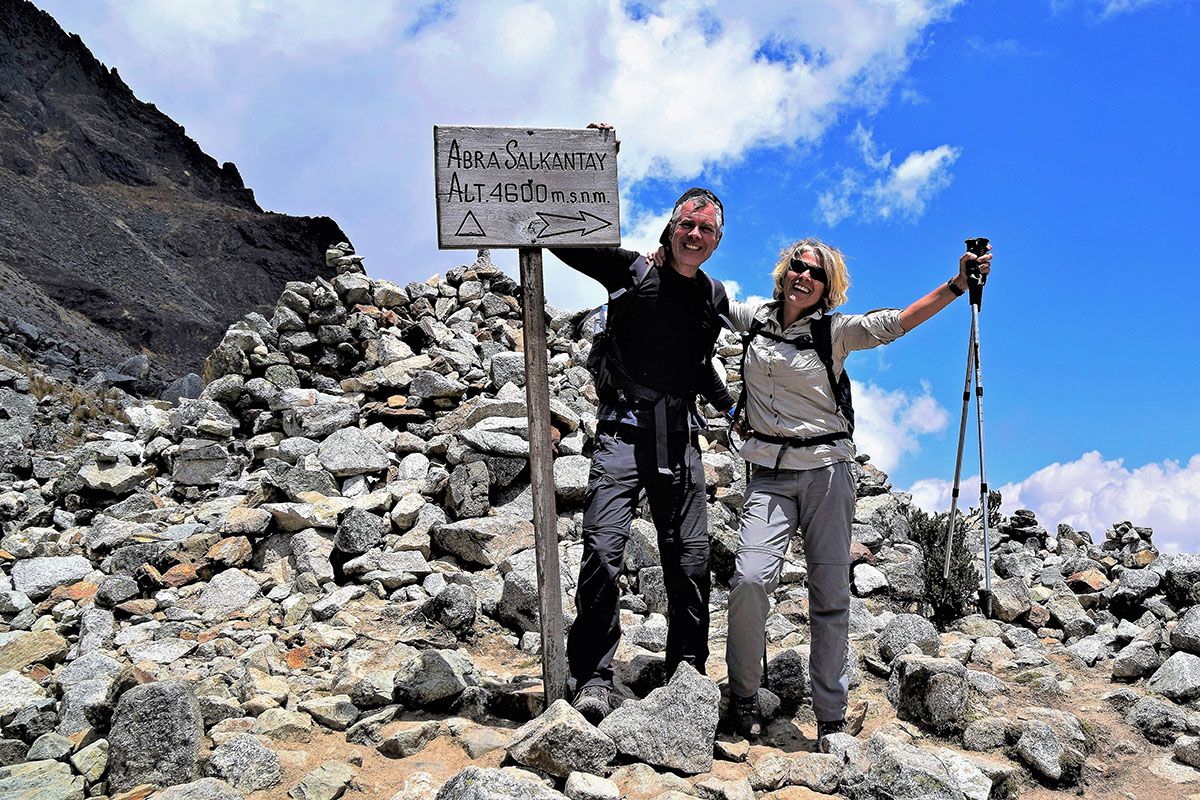Altitude sickness
In many regions of the world, you will travel at high altitude. Think of the Andes Mountains in South America, the Himalaya region in Asia and Kilimanjaro in Africa. The high altitude makes for a thinner air with much less oxygen than we normally breathe at sea level. Our body is not used to this and really has to acclimatise to prevent what is known as altitude sickness. One person suffers more from it than another. This has nothing to do with a good fitness condition, but whether or not you have a predisposition for altitude sickness.

Preventing altitude sickness
You might consider going to sleep in an altitude tent for a period of time, but that is only of interest to real mountaineers. The ordinary traveller does not do this. When you arrive from Europe at Cuzco airport in Peru (3,400 metres above sea level), you immediately notice that you are out of breath. Your heart starts beating faster and your breathing accelerates. The body does this automatically to get more oxygen.
The most important thing is to acclimatise gently and not to take on activities that are too strenuous during the first few days. So do not start the next day with a trek to Machu Picchu; this is a sure guarantee for altitude sickness! It is also important to drink a lot (not alcohol!) and not to smoke. After a few days, your body is better able to cope with the altitude and you can become more active.
Even better to plan your trip is to take into account the altitudes at which you stay. When we started out on the Salkantay trail from Cuzco in 2017, we had already been in the Andes for about 10 days. Our body already had plenty of time to adapt, we had risen slowly in stages from 2,500 metres to about 3,300 metres. Therefore, we had no problem at all in climbing the Salkantay trail in one day, reaching 4,600 metres (well, we were very tired but we didn’t have altitude sickness!).

Medication for altitude sickness
Do not underestimate altitude sickness; in the worst cases it can be fatal! It is important to drink a lot (coca tea for example) and never sleep more than 300 to 500 metres higher than the night before. During the day you can climb more altimeters as long as you descend before night. Depending on what type of altitude sickness you have, you need to take a day off or even descend to a place lower down.
There is medication for altitude sickness (acetazolamide), but only take it after consultation with your doctor. At the following link, you will find much more information about the symptoms of altitude sickness and how to prevent it: information altitude sickness.
